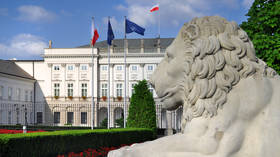Decadent Hypocrisy
by Chōkōdō Shujin

Chōkōdō Shujin criticizes the hypocritical nature of modern political figures, highlighting their contradictory rhetoric and the inherent emptiness and falsehood of human existence as reflected in the performative actions prevalent in today’s society.
I will allow their words to speak for themselves.
Joe Biden: “I have been briefed on the shooting at Donald Trump’s rally in Pennsylvania.
I’m grateful to hear that he’s safe and doing well. I’m praying for him and his family and for all those who were at the rally, as we await further information.
Jill and I are grateful to the Secret Service for getting him to safety. There’s no place for this kind of violence in America. We must unite as one nation to condemn it..”
Kamala Harris: “I have been briefed on the shooting at former President Trump”s event in Pennsylvania.
Doug and I are relieved that he is not seriously injured. We are praying for him, his family, and all those who have been injured and impacted by this senseless shooting.
We are grateful to the United States Secret Service, first responders, and local authorities for their immediate action.
Violence such as this has no place in our nation. We must all condemn this abhorrent act and do our part to ensure that it does not lead to more violence.”
Gavin Newsom: “Violence has NO place in our democracy. My thoughts are with President Trump and everyone impacted at the rally today.”
Alexandria Ocasio-Cortez: “There is no place for political violence, including the horrific incident we just witnessed in Pennsylvania.
It is absolutely unacceptable and must be denounced in the strongest terms.
My heart goes out to all the victims and I wish the former President a speedy recovery.”
Nancy Pelosi: “As one whose family has been the victim of political violence, I know firsthand that political violence of any kind has no place in our society. I thank God that former President Trump is safe.
As we learn more details about this horrifying incident, let us pray that all those in attendance at the former President’s rally today are unharmed.”
Etc.
It is hardly necessary to mention the inflammatory rhetoric of these politicians, who have threatened their opponents, consistently supported political violence, and who have repeatedly failed to condemn the radical and violent actions of their supporters. It is such hypocrites to whom I dedicate these words.
***
Man is a born liar. Truth is simple, and man likes to be showy, to be adorned. Truth does not belong to man; it comes from heaven, in all its perfection. And man loves nothing but his own creations, his own fictions and his own fairy tales. Man is a born liar because vanity is the general nature of his being. Therefore, he loves to show off and embellish. In reality, vanity is emptiness. That is why man makes up fictions and fairy tales, and that is why he loves his own creations. Truth is not the work of man. It is there in all its perfection, independent of man.
A man who is false and externally motivated in his nature is also hypocritical. Just as there is no goodness apart from truth, there is no hypocrisy apart from prosperity. Only those who understand that goodness is one with truth can understand what hypocrisy is. Just as prosperity has some utility in life, so does hypocrisy have some utility in life. Those who do not understand that hypocrisy is essentially the same as prosperity are themselves captivated by their own hypocrisy, so to speak, because of their resentment towards hypocrisy. The word “evil” is a strange word for “false goodness.” This evil is clearly man’s own dim prosperity. It makes it clear from the other side that goodness is nothing but false prosperity. The characteristic of such a hypocrite is that he is sentimental. I have never known a hypocrite who was not a sentimentalist. His morals, which repel hypocrisy, are also sentimentalism. The hypocrite is not as deep a person as he often imagines he is. His imagination is also a form of sentimentalism. If he is a harmless man, it is because sentimental men are generally harmless, though not deep.
It is a mistake to think that a man is hypocritical only in his relationship to other men. Hypocrisy is falsehood, and the substance of falsehood is nothingness, and nothingness is man’s very existence. Just as all virtue is originally in himself, so also is all vice. The hypocrite arises when he forgets his own self and thinks only of other people and society. That is why, since the social nature of morality came to be emphasized, how many hypocrites have arisen? Or rather, theories such as the social nature of morality seem to be stated in an exaggerated manner in order to protect the hypocrisy characteristic of the modern age.
Who among us is not hypocritical? Hypocrisy is the general nature of human existence. The hypocrite is feared not so much because he is hypocritical but because he is a conscious man. However, what he is conscious of is not himself, nor nothingness, but only other people and society.
A life rooted in nothingness is fictional. Human morality is also a fictional thing. That is why hypocrisy can exist and even have some utility. However, fictional things do not remain that way; their reality must be proven. The distinction between a hypocrite and a non-hypocrite lies in the sincerity and passion with which he is able to prove himself. To prove in life is to create, and to create is to unite inside and outside. For the hypocrite, however, the inside and the outside are separate. For the hypocrite, there is no such thing as creation.
The existence of falsehood is possible because every expression has in itself the property of being received as truth. When things are expressed, they become irrelevant to us. Expression is such a fearful thing. The tender-hearted man cringes at the thought of how fearful language, or expression, can be. How many writers today really understand the frightening power of expression?
It is rare that the hypocrite, who is constantly aware of others, is not sycophantic. It is not so much the hypocrisy itself that destroys others, but the sycophancy contained within it. The distinction between the hypocrite and the non-hypocrite lies in whether he is sycophantic or not. It is far worse to be sycophantic than to say the wrong thing. The latter does not corrupt others, but the former corrupts them, perverting their minds and making them incapable of perceiving truth. Even lying is morally superior to sycophancy. Even the harm of falsehood depends primarily on the sycophancy that is mixed in with it. Truth is simple and straightforward. But its reverse side has a thousand facets. The forms that hypocrisy takes in order to gain favor are also infinite.
The most necessary virtue for a man who holds a position of some authority is the ability to distinguish at a glance between a sycophant and a genuine man. This is no small thing. If he possesses this virtue, he may be recognized as possessing all other virtues.
The phrase, “He who is well concealed lives well,” contains a profound wisdom for life. To conceal is not necessarily to be hypocritical, but rather, it often means to live as nature intended. The more one lives naturally, the more one must clearly see that the world is hollow.
What is characteristic of modern moral decadence is that hypocrisy is its universal form. This is a new form of decadence. Decadence usually means the deterioration of form, but in this case the surface form is extremely well-formed. And this form is by no means old, but even entirely new. Moreover, there is no life whatsoever behind this form; even if there is a form, the heart is not supported by that form, it is emptiness. This is the character of modern nihilism.




